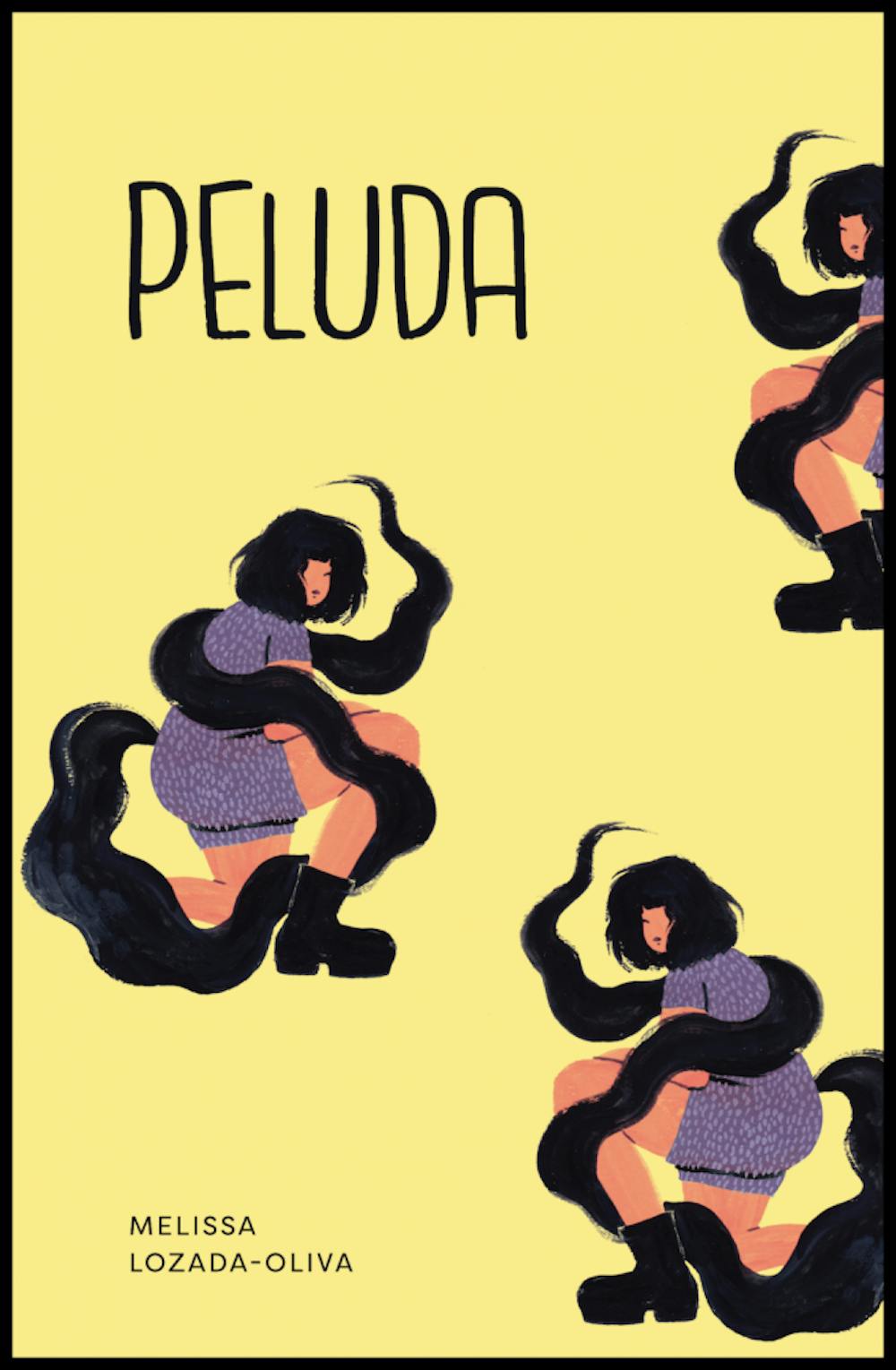Literatures and cultures librarian Katrina Spencer is liaison to the Anderson Freeman Center, the Arabic department, the French department, the Gender Sexuality & Feminist Studies (GSFS Program), the Language Schools, Linguistics and the Spanish & Portuguese departments. These affiliations are reflected in her reading choices. “While I am a very slow reader, I’m a very critical reader,” she says.
Pages: 43
The What
“Peluda” is a book of poems written by a young woman who is of both Guatemalan and Colombian descent, according to the narrative voice of her poetry. Lozada-Oliva uses body hair as a medium to talk about a slew of fraught topics: origin, immigration, self-love/hate, harmful and exclusionary beauty paradigms, interracial romance, the discrepancies between intergenerational values, socioeconomic class and more. Hers is free verse, so if you’re looking for rhyme and meter in your poetic preferences, this will not be the place to go. But if you are looking for metaphor, subversion of popularly accepted behavior and stories that center around brown-skinned people, you have got a winner. Reading her work is like reading Sandra Cisneros’ 1984 “The House On Mango Street,” but in the 21st century and for a contemporary audience.
The Why
My Facebook feed introduced me to this poet, specifically a post via Button Poetry (as was the case with Blythe Baird’s “Give Me A God I Can Relate To”). As a hirsute woman (TMI), the title of the work, “Hairy,” called to me. I have had a mustache since before I can remember and more struggles with hair than I care to mention here. In a
world that keeps telling me that what my body does naturally and without provocation is wrong and undesirable, the idea that a writer would publicly acknowledge her “private” contentions feels awe-inspiring. These conversations are often had in dark corners and hushed tones. I am impressed by the bravery and the many ways in which such a benign and common topic can be used to meaningfully forward discussions of gender politics.
Rating: 4/5 cardigans
Lozada-Oliva’s work demonstrates multiple moments of sheer brilliance and uncanny insight. She is an author to watch; I trust her writings will continue to evolve and expand and I will not be surprised when her name appears on a best-seller’s list. However, some of the poems included in this collection are so fantastic, in the literal sense of the word, that they are inaccessible. As the author continues to publish, I trust she will be more exacting in excluding excesses that make the compilation longer but do not necessarily advance the piece’s themes, potency and goals. See her read her poetry on YouTube in “Yosra Strings Off My Mustache.”




